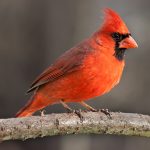As a bird lover, you may have wondered about the emotional lives of birds. Birds have strong natural instincts, especially when it comes to caring for their offspring. But do they experience emotions like sadness when their eggs break or are lost?
In this article, we will explore the emotional world of birds and their response to the loss of their eggs. We’ll delve into the fascinating realm of avian psychology and understand the connection between bird emotions and their natural instincts for caring for their offspring. We will also examine the emotional response of birds when their eggs break or are lost and investigate the potential long-lasting effects on their behavior and future reproductive cycles.
Key Takeaways:
- Birds have strong natural instincts when it comes to caring for their offspring.
- The connection between bird emotions and their natural instincts for caring for their offspring is an area of ongoing research.
- Studies suggest that avian species can experience distress and sadness in response to the loss of their eggs.
Bird Emotions: Unraveling Avian Psychology
As humans, we have long been transfixed by the emotional lives of animals, and birds are no exception. In recent years, there has been a growing interest in avian psychology, particularly in understanding how birds experience emotions.
Birds have been shown to have complex emotional lives, with some scientists arguing that birds have the capacity to experience a range of emotions, from happiness to anxiety and even grief. Their emotional states can be influenced by a variety of factors, such as their environment, experiences, and social interactions.
Avian psychology also examines how birds behave, including their social interactions, communication methods, and patterns of movement. It aims to understand the complex cognitive processes that underlie bird behavior, including problem-solving, decision-making, and memory.
Birds are highly intelligent creatures, with some studies suggesting that they may even rival primates in some areas of cognition. They have been shown to use tools, solve puzzles, and even demonstrate empathy towards their peers.
Bird Behavior
The behavior of birds is influenced by a variety of factors, including their natural instincts, social interactions, and the environment they live in. Their behavior can provide valuable insights into their emotional lives and the complex cognitive processes that underlie their actions.
For example, some bird species have been observed forming long-term monogamous partnerships, suggesting a capacity for social attachment and emotional bonding. Other birds display complex nesting and parenting behaviors, indicating a strong drive to care for their offspring.
Bird behavior can also be influenced by external factors, such as human activity and climate change. Some bird species have been shown to adapt their behavior in response to these changing conditions, suggesting a capacity for flexibility and resilience.
The Future of Avian Psychology
As our understanding of avian psychology continues to grow, so too does our appreciation of the emotional lives and behaviors of birds. Ongoing research is shedding new light on the complex cognitive processes that underlie bird behavior, and the emotional states that drive their actions.
By gaining a deeper understanding of avian psychology, we can better appreciate the emotional and cognitive lives of birds, and improve our relationships with these intelligent and fascinating creatures.
Bird Parental Instincts and Reproductive Behaviors
Birds possess strong parental instincts that guide their reproductive behaviors, particularly during the nesting and breeding seasons. These instincts instruct them to protect and care for their offspring, make them among the most devoted and nurturing parents in the animal kingdom. Bird parental instincts are thought to be influenced by a range of factors, including their genetic makeup, environmental cues, and past experiences.
During the nesting season, birds build nests, lay eggs, and incubate them to ensure their survival. The incubation process requires considerable effort and commitment from the parents, who must ensure the eggs are kept warm and protected. They use their body heat to regulate the temperature of the eggs and turn them frequently to ensure they develop properly.
Once the eggs hatch, the parents must continue to provide for their offspring, bringing them food and keeping them warm. This requires a great deal of energy and dedication, but is critical to the survival of their young.
However, the loss of eggs can significantly impact bird emotions and reproductive behaviors. Birds who lose eggs, either through predation or accident, can become distressed and exhibit changes in their behavior. They may stop nesting, abandon their eggs, or exhibit signs of depression.
To avoid egg loss and its emotional impact, birds engage in a range of reproductive behaviors that help them protect their offspring. These can include hiding nests in hard-to-find locations, building elaborate nests that provide extra protection, and actively defending the nest from predators or other birds.
Overall, the strong parental instincts of birds and their reproductive behaviors reflect a deep emotional connection to their offspring. The loss of eggs can have a significant impact on birds, highlighting the importance of understanding avian emotions and their response to various situations.
The Emotional Response to Egg Loss
Birds have a strong instinctual drive to care for their offspring, and the loss of eggs can have a significant impact on their emotional state. Studies have shown that avian species can experience distress and sadness in response to egg loss, indicating a complex emotional response.
When a bird’s eggs break or are lost, they may exhibit behaviors such as increased agitation, calling out more frequently, or spending more time at the nest. Some species may even abandon the nest entirely if their eggs are lost. This emotional response can vary depending on the individual bird and the circumstances surrounding the egg loss.
While it is difficult to determine whether birds experience sadness as humans do, their behavioral responses suggest a strong emotional connection to their offspring. Research has also shown that egg loss can have long-lasting effects on a bird’s behavior and future reproductive cycles.
It’s important to note that the emotional lives of birds are still not fully understood, and further research is needed to gain a deeper understanding of their reactions to egg loss and other situations.
“The emotional response of birds to egg loss is an area of ongoing research, and we are constantly discovering new insights into their complex emotional lives.”
Bird Offspring: Understanding the Emotional Connection between Birds and their Eggs
As you explore the emotional world of birds, you cannot ignore the vital role their offspring play in their lives. While it is challenging to establish if birds experience sadness when their eggs break, their behavioral reactions reflect a strong emotional connection to their offspring.
The bond between birds and their offspring is grounded in their strong parental instincts. During the nesting and breeding seasons, birds have an instinctual drive to protect and care for their eggs. The loss of eggs can impact their emotional state and lead to changes in their behavior, which could persist into their future reproductive cycles.
As you reflect on the intricacies of the relationship between birds and their eggs, it’s clear that their offspring hold a special place in their hearts. Their complex emotional lives are a result of their natural instincts for caring for their young, and this connection cannot be underestimated.
Further Research is Needed
While studies suggest that avian species can experience distress and sadness in response to egg loss, there is still much to learn about bird emotions. Further research is needed to understand the emotional lives of birds fully and their reactions to egg loss better. By exploring the avian psychology of birds, we can gain essential insights into the complex emotional lives of our feathered friends.
The emotional connection between birds and their offspring is an essential aspect of their lives. Although their emotions may not be as complex as those of humans, their responses to egg loss highlight the significance of these connections. By understanding the intricate relationships between birds and their offspring, we can continue to learn more about the emotional lives of these incredible creatures.
Do Birds Ever Get Tired of Flying if They Have to Fly Long Distances?
Birds and exhaustion during flight are factors that are closely interlinked. While birds are known for their incredible endurance, long-distance flights can take a toll on their energy levels. Some species, such as migratory birds, are adapted to fly for extended periods without resting. However, even these remarkable aviators can experience fatigue and may alternate between soaring and flapping to conserve energy. Nonetheless, birds’ remarkable instincts and physiology help them combat exhaustion and complete their impressive journeys.
FAQ
Q: Do birds get sad when their eggs break?
A: While it is challenging to definitively determine if birds experience sadness as humans do, studies suggest that avian species can display distress and a range of emotional responses when their eggs break or are lost. Their behavioral reactions indicate a strong emotional connection to their offspring.
Q: How do birds experience emotions?
A: Birds are believed to experience a wide range of emotions, including joy, fear, anger, and sadness. Their emotional experiences are influenced by various factors such as their species, environment, and social interactions. Avian psychology continues to be an area of research and exploration.
Q: What are the parental instincts of birds?
A: Birds have strong parental instincts and behaviors, especially during the nesting and breeding seasons. They instinctively protect and care for their eggs, ensuring their survival and successful hatching. The loss of eggs can affect their emotional state and may have long-lasting effects on their behavior and future reproductive cycles.
Q: How do birds respond emotionally to egg loss?
A: The emotional response of birds to egg loss can vary depending on the species and individual bird. Some studies suggest that birds can experience distress and sadness when their eggs break or are lost. This emotional response may influence their behavior and interactions with other birds.
Q: What is the connection between bird emotions and their natural instincts?
A: Bird emotions are closely tied to their natural instincts, particularly their instinctual drive to care for their offspring. The loss of eggs can disrupt this natural instinct and impact their emotional well-being. Understanding the emotional lives of birds is crucial for comprehending their behaviors and responses to various situations.







